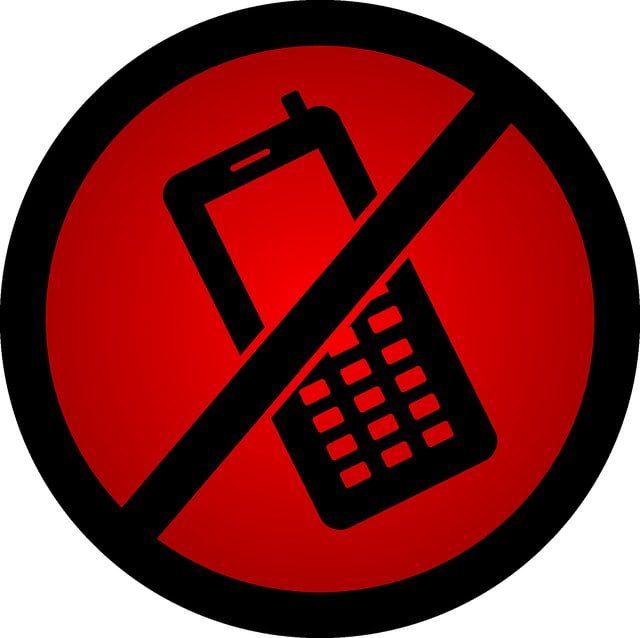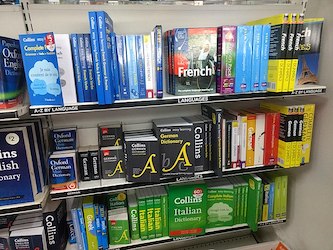The government in the Netherlands said they will not allow phones in classrooms. This is to make sure students can focus on their lessons. The new rule will start next year. Some students can still use their phones. This includes students who need them for health reasons or for learning about technology. The rule does not have the force of law, but it might in the future.
The Education Minister, Robbert Dijkgraaf, said “Phones do not belong in the classroom. Students need to focus and learn well there. We know from science that phones make this hard.” Studies show that when kids spend less time on screens, they think better and focus more. The Dutch rule also includes tablets and smartwatches.
Each school can decide the exact rules. They will talk with teachers, parents, and students to decide. They can even choose to ban devices completely. The government, schools, and other groups agreed on this plan. They will see how well it works in the 2024/2025 school year. They might then make the ban a law. Other countries like Finland, England, and France also want to ban phones to help students learn better.
Original news source: Netherlands: Phone ban announced to stop school disruptions (BBC)
Listen
Slow
Normal
Fast
Group or Classroom Activities
Warm-up Activities:
– Sentence Order Challenge
Instructions: Write sentences from the article on strips of paper. Mix them up and give each group of students a set. The first group to put the sentences in the correct order wins.
– Role Play Scenario
Instructions: Divide the class into groups of three. Each group will have a student, a teacher and a parent. They should act out a conversation where they are discussing the phone ban in the school.
– Retell the Story
Instructions: After reading the article, have each student take a turn to retell a part of the text in their own words. This will help them to understand the content better and will also improve their spoken English.
Comprehension Questions:
1. What does the government in the Netherlands want to do with phones in classrooms?
2. When will the new rule start?
3. Who can still use their phones in the classroom?
4. What did the Education Minister, Robbert Dijkgraaf, say about phones in the classroom?
5. What happens when kids spend less time on screens?
6. Besides phones, what other devices does the Dutch rule include?
7. Who will decide the exact rules about phones in each school?
8. What will happen in the 2024/2025 school year?
Go to answers ⇩
Listen and Fill in the Gaps:
The government in the (1)______ said they will not allow phones in classrooms. This is to make sure students can focus on their lessons. The new rule will start next year. Some students can still use their phones. This includes students who need them for health reasons or for learning about technology. The rule does not have the force of law, but it might in the future.
The Education Minister, (2)______, said “Phones do not belong in the classroom. Students need to focus and learn well there. We know from science that phones make this hard.” Studies show that when kids spend less time on screens, they think better and focus more. The Dutch rule also includes tablets and (3)______.
Each school can decide the exact rules. They will talk with teachers, parents, and students to decide. They can even choose to ban devices completely. The government, schools, and other groups agreed on this plan. They will see how well it works in the (4)______/2025 school year. They might then make the ban a law. Other countries like Finland, (5)______, and France also want to ban phones to help students learn better.
Go to answers ⇩
Discussion Questions:
Students can ask a partner these questions, or discuss them as a group.
1. Do you use your phone in your classroom?
2. How do you feel when you can’t use your phone?
3. Do you think phones should be in the classroom? Why?
4. Can you focus better without your phone?
5. Do you know anyone who needs a phone for health or learning?
6. Do you think tablets and smartwatches should be allowed?
7. Should each school choose its own phone rules?
8. Who should help make the phone rules at school?
9. How would you feel if your school banned all devices?
10. Do you think the ban is a good idea?
11. Do you think other countries should ban phones too?
12. Do you think phones make it hard to learn?
13. Do you spend a lot of time on screens? How does it make you feel?
14. Would you be sad if you couldn’t use your phone in school?
15. Why do you think some schools want to ban phones?
Individual Activities
Vocabulary Meanings:
Match each word to its meaning.
Words:
1. government
2. classrooms
3. lessons
4. technology
5. science
6. tablets
7. teachers
8. law
Shuffled Meanings:
A) A place where students go to learn
B) The study of the natural world based on facts learned through experiments and observation
C) People who help students learn
D) The rules that a country or community makes that everyone has to follow
E) The group of people who control and make decisions for a country
F) Things we learn at school
G) Things like computers, phones, and other machines that help us do things
H) Small computers that you can carry around and touch the screen to use
Go to answers ⇩
Multiple Choice Questions:
1. What will the government in the Netherlands not allow in classrooms?
(a) Tablets
(b) Phones
(c) Smartwatches
(d) Computers
2. When will the new rule start?
(a) Next year
(b) This year
(c) In two years
(d) In three years
3. Who can still use their phones in the classroom?
(a) Students who are bored
(b) Students who forgot their books
(c) Students who need them for health reasons or for learning about technology
(d) All students
4. What did the Education Minister, Robbert Dijkgraaf, say about phones in the classroom?
(a) Phones are necessary for learning
(b) Phones should be used only for emergencies
(c) Phones make learning easier
(d) Phones do not belong in the classroom
5. What do studies show about kids spending less time on screens?
(a) They become more tired
(b) They become more bored
(c) They think better and focus more
(d) They become less social
6. Who can decide the exact rules about phones in the classroom?
(a) The government only
(b) The students only
(c) The teachers only
(d) The school, including teachers, parents, and students
7. When will they see how well the plan works?
(a) In the 2024/2025 school year
(b) In the 2023/2024 school year
(c) In the 2022/2023 school year
(d) In the 2025/2026 school year
8. Which other countries also want to ban phones to help students learn better?
(a) Canada, Germany, and Australia
(b) USA, China, and India
(c) Finland, England, and France
(d) Spain, Italy, and Greece
Go to answers ⇩
True or False Questions:
1. The Netherlands government will let students use phones in classrooms.
2. The new rule will start next year.
3. All students can still use their phones.
4. The rule might become a law in the future.
5. The Education Minister’s name is Robbert Dijkgraaf.
6. The Dutch rule does not include tablets and smartwatches.
7. Each school can decide the exact rules.
8. The government, schools, and other groups did not agree on this plan.
Go to answers ⇩
Write a Summary:
Write a summary of this news article in two sentences.
Writing Questions:
Answer the following questions. Write as much as you can for each answer.
1. What did the government in the Netherlands say about phones in classrooms?
2. Why does the government want students to focus on their lessons?
3. Can some students still use their phones in the classroom? Why?
4. Who said that phones do not belong in the classroom?
5. What do studies show about kids and screens?
Answers
Comprehension Question Answers:
1. What does the government in the Netherlands want to do with phones in classrooms?
– The government in the Netherlands wants to not allow phones in classrooms.
2. When will the new rule start?
– The new rule will start next year.
3. Who can still use their phones in the classroom?
– Students who need them for health reasons or for learning about technology can still use their phones.
4. What did the Education Minister, Robbert Dijkgraaf, say about phones in the classroom?
– He said that phones do not belong in the classroom and students need to focus and learn well there.
5. What happens when kids spend less time on screens?
– When kids spend less time on screens, they think better and focus more.
6. Besides phones, what other devices does the Dutch rule include?
– The Dutch rule also includes tablets and smartwatches.
7. Who will decide the exact rules about phones in each school?
– Each school will decide the exact rules. They will talk with teachers, parents, and students to decide.
8. What will happen in the 2024/2025 school year?
– They will see how well the plan works in the 2024/2025 school year. They might then make the ban a law.
Go back to questions ⇧
Listen and Fill in the Gaps Answers:
1. Netherlands
2. Robbert Dijkgraaf
3. smartwatches
4. 2024
5. England
Go back to questions ⇧
Vocabulary Meanings Answers:
1. government
Answer: E) The group of people who control and make decisions for a country
2. classrooms
Answer: A) A place where students go to learn
3. lessons
Answer: F) Things we learn at school
4. technology
Answer: G) Things like computers, phones, and other machines that help us do things
5. science
Answer: B) The study of the natural world based on facts learned through experiments and observation
6. tablets
Answer: H) Small computers that you can carry around and touch the screen to use
7. teachers
Answer: C) People who help students learn
8. law
Answer: D) The rules that a country or community makes that everyone has to follow
Go back to questions ⇧
Multiple Choice Answers:
1. What will the government in the Netherlands not allow in classrooms?
Answer: (b) Phones
2. When will the new rule start?
Answer: (a) Next year
3. Who can still use their phones in the classroom?
Answer: (c) Students who need them for health reasons or for learning about technology
4. What did the Education Minister, Robbert Dijkgraaf, say about phones in the classroom?
Answer: (d) Phones do not belong in the classroom
5. What do studies show about kids spending less time on screens?
Answer: (c) They think better and focus more
6. Who can decide the exact rules about phones in the classroom?
Answer: (d) The school, including teachers, parents, and students
7. When will they see how well the plan works?
Answer: (a) In the 2024/2025 school year
8. Which other countries also want to ban phones to help students learn better?
Answer: (c) Finland, England, and France
Go back to questions ⇧
True or False Answers:
1. The Netherlands government will let students use phones in classrooms.
Answer: False
2. The new rule will start next year.
Answer: True
3. All students can still use their phones.
Answer: False
4. The rule might become a law in the future.
Answer: True
5. The Education Minister’s name is Robbert Dijkgraaf.
Answer: True
6. The Dutch rule does not include tablets and smartwatches.
Answer: False
7. Each school can decide the exact rules.
Answer: True
8. The government, schools, and other groups did not agree on this plan.
Answer: False
Go back to questions ⇧















